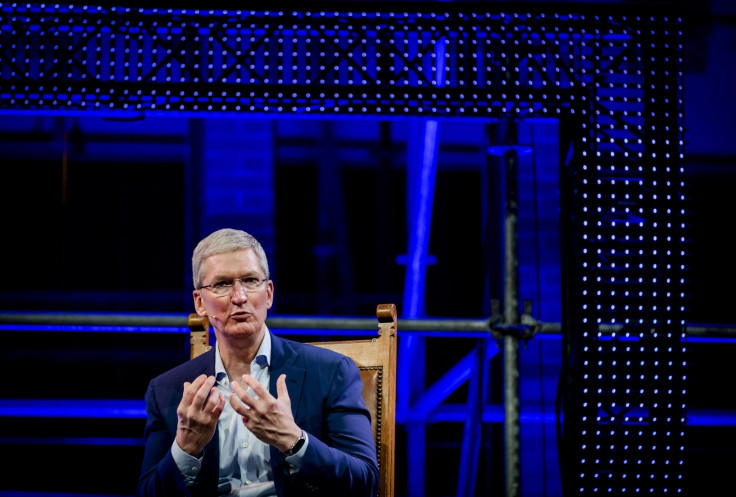Apple CEO Tim Cook: 'Fake news' on social media is a bigger threat than Russian-bought ads
Cook's remarks come as rivals Facebook, Twitter and Google are being grilled over Russia's influence campaign during the election.
Apple CEO Tim Cook has weighed on the spread of "fake news" on social media saying the trend poses a bigger threat to the US than online ads bought by foreign governments. During an interview with NBC's Lester Holt on Wednesday, Cook said social media is being exploited to "divide" and "manipulate" users.
This week, representatives from tech rivals Facebook, Google and Twitter are being grilled by lawmakers in Congressional committee hearings over the role their platforms played in Russia's interference and misinformation campaign during the 2016 election campaign.
"I don't believe that the big issue are ads from foreign governments," Cook said. "I believe that's like 0.1% of the bigger issue. The bigger issue is that some of these tools are used to divide people, to manipulate people, to get fake news to people in broad numbers, and so, to influence their thinking. And this, to me, is the No. 1 through 10 issue."
The House Intelligence Committee released a sample of the trove of ads bought by inauthentic accounts linked to Russian operatives on Wednesday. These politically-divisive ads touched on several sensitive topics, ranging from immigration and Islamaphobia to race relations and gun control.
The ads were just a few of the 3000 Facebook ads bought by Russian operatives that were designed to divide people and sow discord in the US. Facebook revised its estimate as to how many Americans viewed the Russian-bought content from 136 million to 150 million Americans.
Twitter said it discovered 2,752 accounts linked to Russia on its own platform, up from the 201 accounts it initially reported were connected to the Facebook ads. Google admitted that Russian operatives purchased tens of thousands of dollars worth of ads on Gmail, YouTube and Google search.
US lawmakers slammed the companies over their "disappointing" response to the issue in two of the three hearings scheduled this week on Russia's use of social media in the run-up to the election. One lawmaker even chastised the firms for sending their general counsels to testify for them in lieu of their more well-known CEOs.
"I'm disappointed that you're here but not your CEOs," Senator Angus Maine said. "We would appreciate seeing the top people actually making the decisions."
Senator Dianne Feinstein told the representatives: "I must say, I don't think you get it."
"What we're talking about is a cataclysmic change," she continued. "What we're talking about is the beginning of cyber warfare. What we're talking about is a major foreign power with the sophistication and ability to involve themselves in a presidential election and sew conflict and discontent all over this country.
"You have a huge problem on your hands. You have created these platforms and now they are being misused. And you have to be the ones to do something about it, or we will."
However, Cook said the social media giants have "learned along the way a lot" since the November election last year.
"We'll probably learn more in those hearings as to the particulars. But I do think that technology itself doesn't want to be good. It doesn't want to be anything," he said. "It's up to the creator of the technology and the user of the technology to make it good."






















